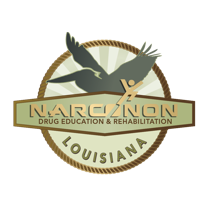How Enabling Starts and
How to Stop

When you have a kid, you want them to have the best possible life they can have. Many parents will help their kids financially, yet this behavior gets complicated when your child begins to struggle with substance abuse.
They can twist your instinct to support, help, and love them into helping them to continue their habit. For this reason, we have compiled a list of suggestions as to what is probably ok to do and what might be considered “enabling.”
Actions That Are Enabling
Giving them money
This is perhaps the most common version of enabling. Addiction is not one of those issues you can blindly throw money at hoping it will prevent something terrible from happening. At best, it can prevent your loved one from realizing how bad their life has become; at worst, your money could end up funding an early death. Realize that any money you give them to catch up on bills or buy food will likely be spent on drugs. (And notice I used the word “give”, as money loaned will not likely ever be repaid.)
Pretending everything is ok
It is hard to admit to yourself that you are in denial about your loved one’s problem. However, admitting it is easier than letting something terrible happen to your loved one. If something seems off or you know something is just not right, please do something about it for your own sake.
Buying them things
This is a lot like the first example, however, I wanted to make sure it was clear this can make things worse, even though it is not the same thing as giving them money. You might think that giving gift cards or buying gifts for a birthday or Christmas doesn’t count. Unfortunately, you would be wrong. Someone struggling with substance abuse will figure out a way to use that to fuel their habit, whether it is by pawning the gifts or by finding a drug dealer who will work out a trade and provide drugs in exchange for the gift.
Accepting the fact they are an addict
Dealing with someone struggling with substance abuse is frustrating and can push people into a condition of apathy where they feel there is nothing they can do to change their loved one’s problem. Going into apathy means you don’t do anything to prevent their continued use. This inaction can appear like you are fine with the life your loved one is living.
This can also leave you feeling unsure of what can be done that is not enabling. What actions can you take to not enable, but work towards helping your loved one turn their life around?
Actions That Are Not Enabling
Meet them for a meal
This is a way you can provide for them emotionally while also feeding them. It enables you to meet and, while eating, allows you to bring up the subject of them getting help. Since addicts will often forgo eating if they must choose between their next dose and food, you can provide the food without directly giving them money. This avoids the risk of their using the money to feed their habit.
Pay a crucial bill directly
If there is something you consider you should help them with, such as paying an electric bill or putting gas in their car to go to a doctor, do not give them money for that thing. Instead get the information and pay the bill directly online or go with them to the gas station and fill up the tank.
Help them get into treatment
Many times, getting help can have financial responsibility and spending money to get them help is a much better use of finances than paying for them to get high. When they are willing to get help offering to help them get into treatment is far from enabling—it’s what you want.
If they express a desire for treatment, be active with them in getting information on the treatment facility. Help them with making the decision to go into treatment. Once that is done, assist with travel arrangements, packing, and logistics if needed.
Helping them once they get out of treatment
Once the person gets out of treatment, it is often a good idea they go somewhere other than back home. This requires money and, while it will give your loved one a leg up on starting a new life, you should lay down some ground rules and establish how long you will help them.
It is also a good idea for them to put any money they get from their pay into a bank account that you also have access to so you can see what they are spending their money on.
While we wrote this article from the perspective of parents helping their children (or even if they are an adult), the same can apply to relationships with other relatives, spouses, or friends. If you draw comparisons from this article to a relationship you have in your life, you can get them help and step away from merely enabling them.
Enabling someone with support may feel like the right thing to do, but it becomes a fake and often dangerous solution to the problem substance abuse has become in the life of the one you love.


